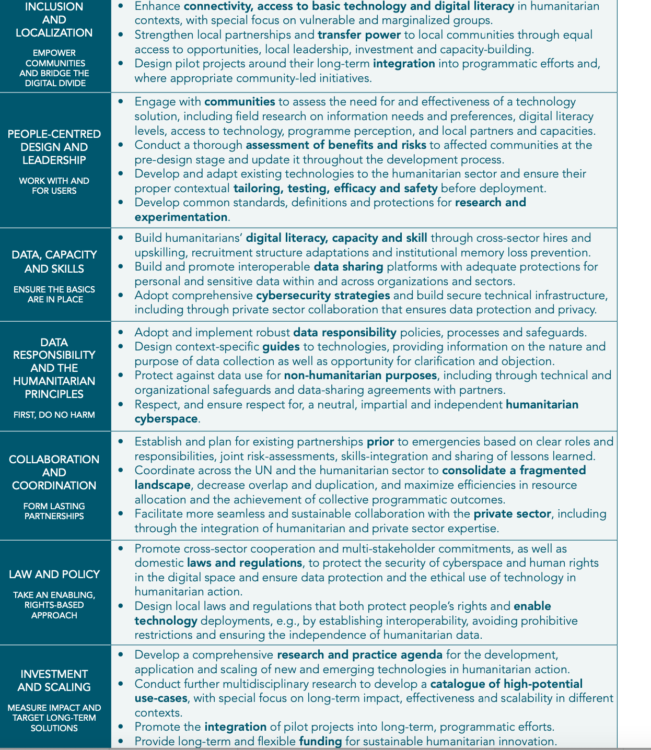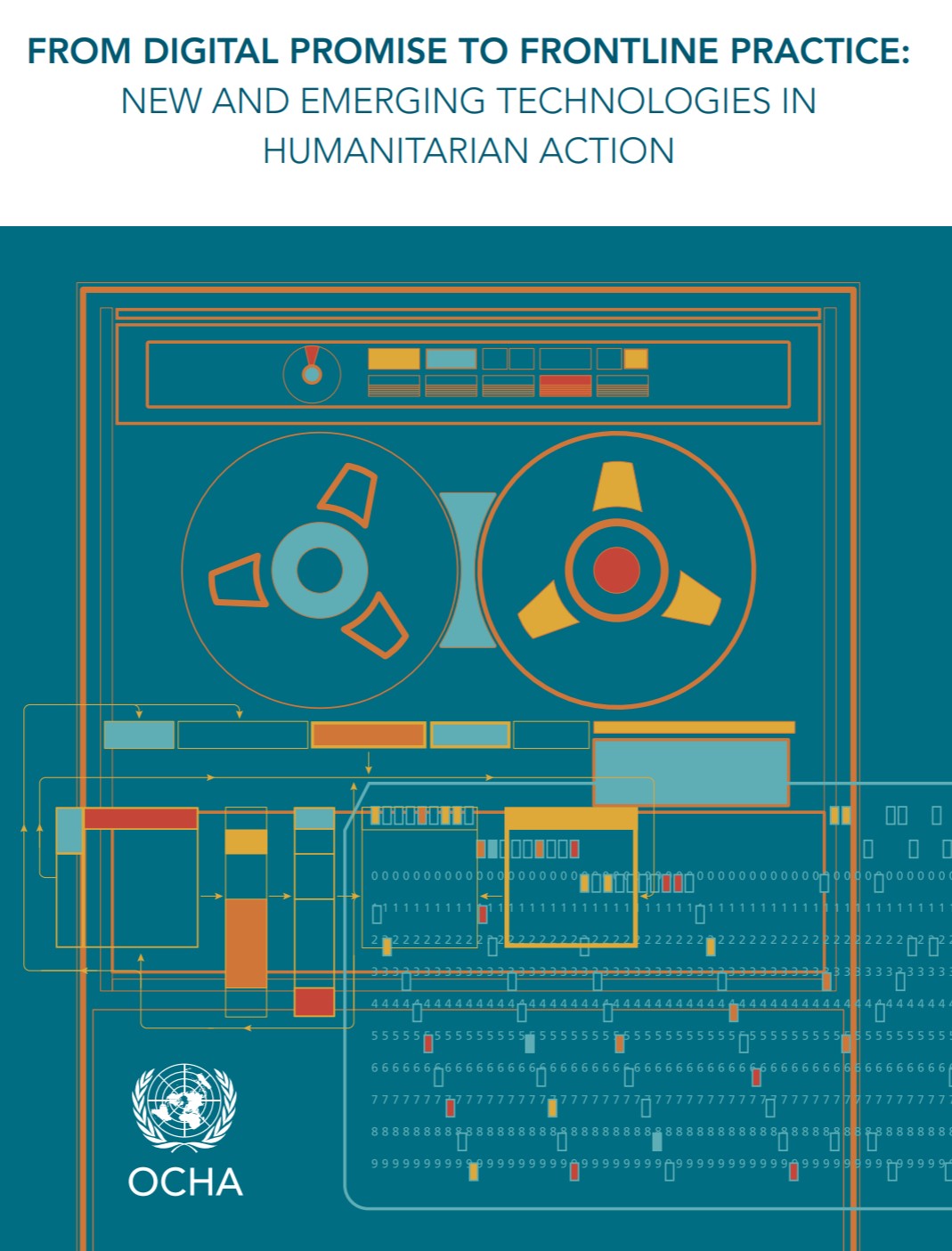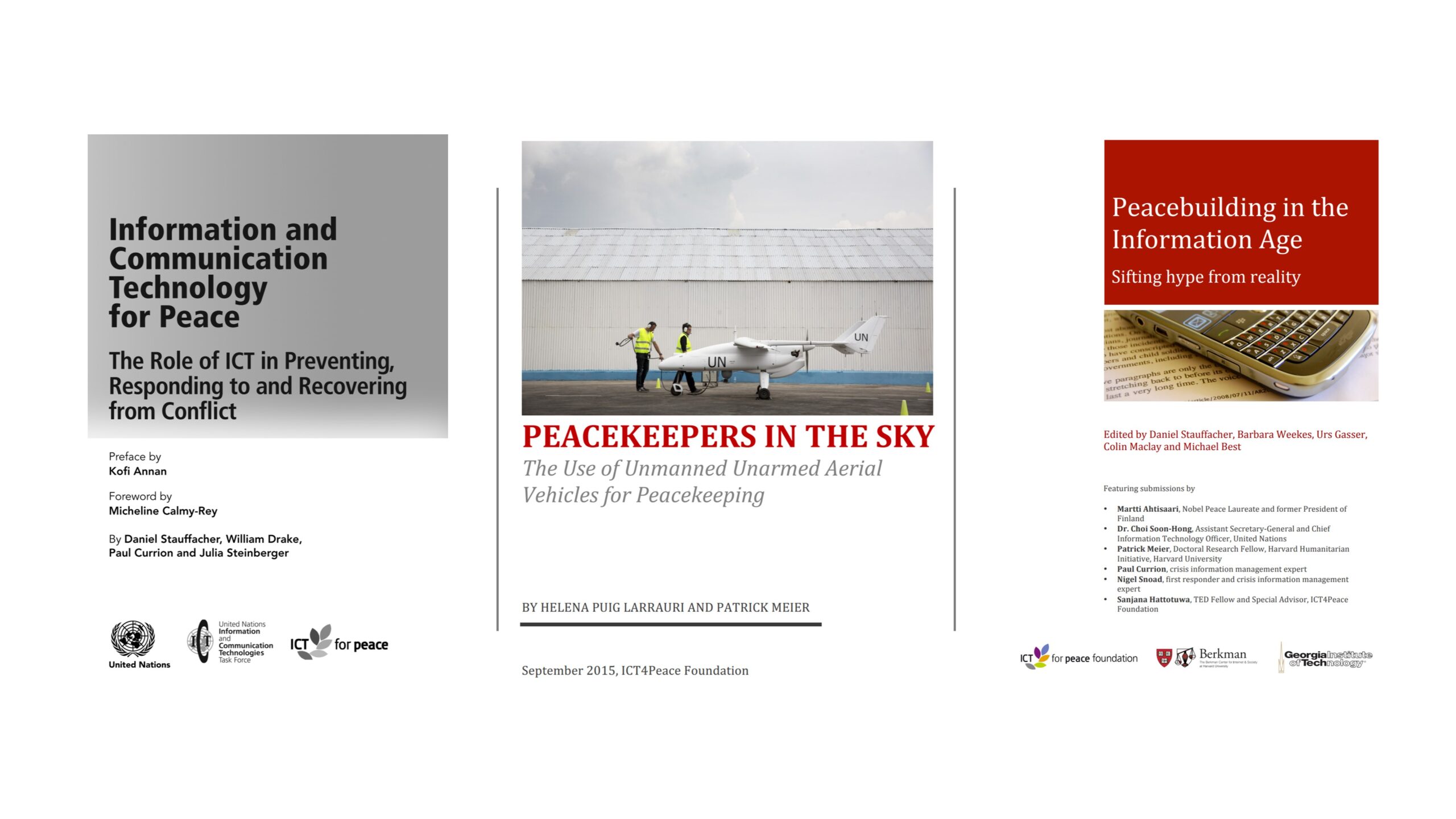ICT4Peace welcomes the latest report by OCHA on new and emerging technologies in humanitarian action. The OCHA Report can be found here.
Announcing the report OCHA writes: “The report – From Digital Promise to Frontline Practice: New And Emerging Technologies in Humanitarian Action – underscores that artificial intelligence can facilitate analysis and interpret vast and complex humanitarian data sets to improve projections and decision-making. Mobile applications, chatbots and social media can create immediate feedback loops with people affected by humanitarian crises. And, as showcased by the COVID-19 pandemic, businesses, education and health services can be shifted to virtual environments overnight.
But the report also highlights that such advantages come with complex challenges and risks. For example, inadequate data protection and privacy can cause harm, intensify insecurities and hinder the principled delivery of humanitarian assistance. Unequal connectivity, access to technology or digital literacy can exacerbate core vulnerabilities and intensify gender biases, while incomplete data sets about affected people can lead to digital discrimination.”
The very useful recommendations of the OCHA report can be found on page 54, some of which are highlighted below.

Many recommendations echo the points raised by ICT4Peace in e.g. the following publications:
- Information and Communication Technology for Peace (2005)
- Peacebuilding in the Information Age (2011)
- Peacekeepers in the Sky (2019)
The ICT4Peace Foundation has worked very closely with OCHA since many years, including by helping support the development of the Humanitarian Exchange Language (HXL). HXL built on work that for many years, the ICT4Peace Foundation supported the hosting of OCHA’s Common Operational Datasets (CODs) and Fundamental Operational Datasets (FODs). Our engagement goes back to 2007, when Sanjana Hattotuwa, Special Advisor to the ICT4Peace Foundation, addressed the OCHA +5 Symposium.
OCHA and ICT4Peace for instance cooperated to develop best practices around the use of new media in humanitarian operations and crisis information management, interfacing and working with volunteer and technical communities (V&TCs), helped establish vital platforms for the dissemination of fundamentally important datasets of UN member states in relation to disaster risk reduction and crisis response, helped ideate and communicate pathbreaking new technologies like HXL, supported exercises led by OCHA that have strengthened the work of digital humanitarians, published papers on Big Data and humanitarian aid. See Thank You letter from OCHA to ICT4Peace from 2013.
OCHA was a founding member of the UN Secretary General’s Crisis Information Management Strategy Advisory Group (CiMAG), CiMS (A/65/491) “Status of implementation of the information and communications technology strategy for the United Nations Secretariat Report of the Secretary-General” which included all relevant UN Agencies, Funds and Programmes, organized by ICT4Peace and the UN CITO from 2008 to 2015 in New York.


